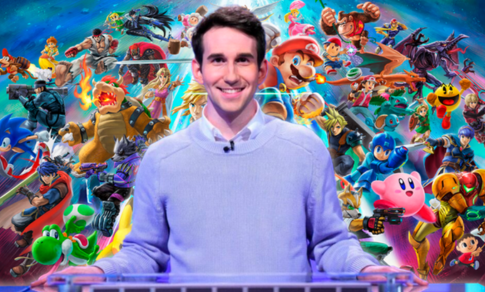Scott ‘Biscotto’ Riccardi, a dedicated online competitor in Super Smash Bros. Ultimate, is turning heads far beyond the world of esports. In a stunning crossover of trivia and gaming, Biscotto has now won an impressive $262,101 during a 10-day winning streak on the iconic TV game show Jeopardy. His success places him among just 18 contestants in the show’s history to reach such a milestone — and the payout already exceeds what most professional Smash players have earned in their entire competitive careers.
Though not considered a top-tier Smash pro, Biscotto has been a consistent grinder in the online scene. Yet, his recent decision to compete on Jeopardy has proven to be far more lucrative than his time in competitive gaming. In just ten days, Biscotto has already out-earned Leonardo ‘MkLeo’ Perez — widely regarded as one of the best in Smash Ultimate — who has earned about $168,669 from tournaments since 2018. The next-highest earner in the scene, Gavin ‘Tweek’ Dempsey, has collected around $110,756.
The story is similar in Smash Melee, a game with even deeper roots dating back to 2001. Biscotto has surpassed William ‘Leffen’ Hjelte, who has accumulated $215,625 in prize money over his storied career. Now, only four Melee players remain ahead of him in terms of earnings: Mew2King, Armada, Mang0, and Hungrybox, with the latter being the highest at $453,715.
While these totals are based on publicly available figures from sites like Esports Earnings and may not include every tournament or alternate income like sponsorships, they reflect a deeper truth: Smash esports is not a financially rewarding ecosystem, even for its top players.
Unlike other major esports like League of Legends, VALORANT, or Counter-Strike 2, where players can make a living solely from prize money and team salaries, Smash pros often face financial challenges. Many cannot afford travel costs or tournament entry fees, and prize pools are typically modest. Even top talents like Juan ‘Hungrybox’ DeBiedma have had to work full-time jobs outside of gaming to sustain themselves.
This financial disparity is due in large part to the lack of support from Nintendo, and a scene that thrives more on community passion than corporate infrastructure. Tournament organizers often fund events out-of-pocket or rely on crowdfunding to offer minimal prize money. The result is a fiercely dedicated, but financially fragile, esports community.
Biscotto’s success on Jeopardy is a reminder of this imbalance. While his trivia knowledge has led to life-changing winnings in less than two weeks, many of the best in Smash have spent years chasing trophies with little monetary reward. In the Smash world, players celebrate not for riches, but for legacy — and that’s what makes their passion so compelling.








ADD A COMMENT :